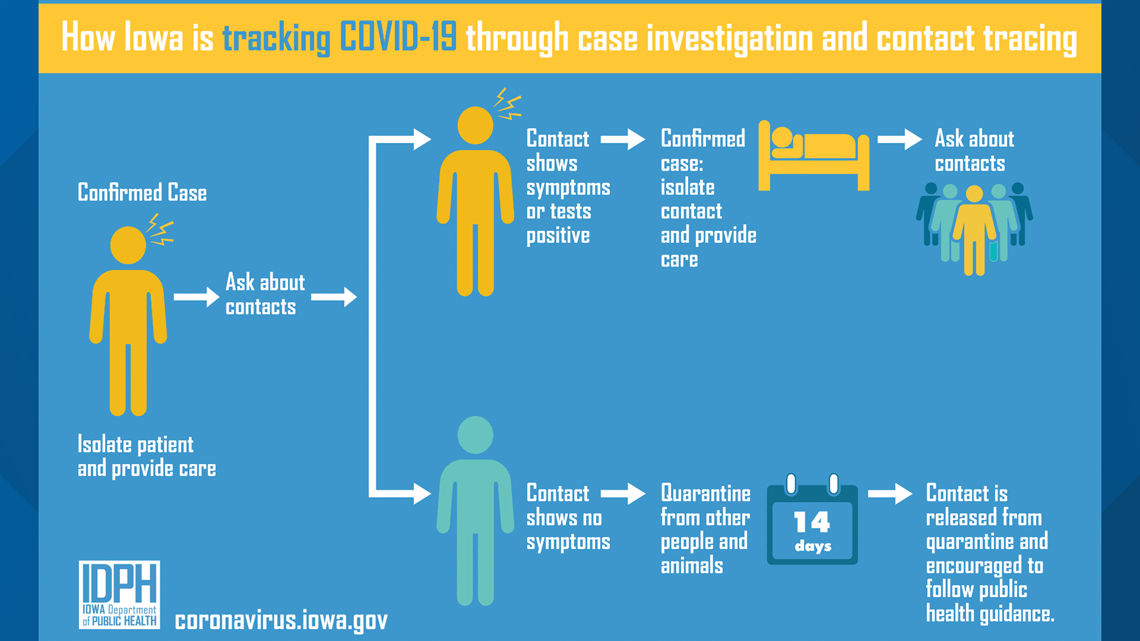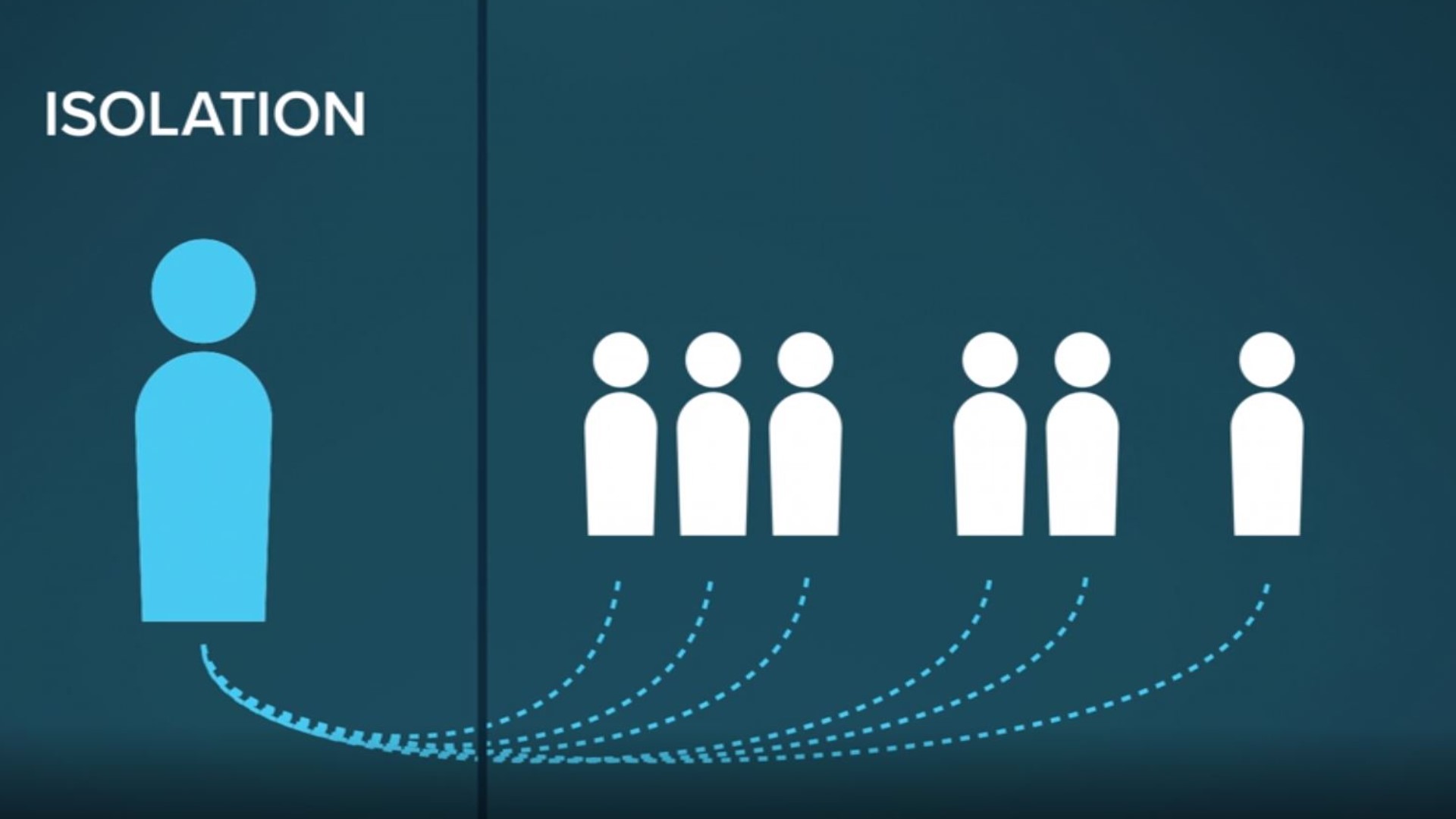DES MOINES, Iowa — With COVID-19 cases skyrocketing, state epidemiologist Dr. Caitlin Pedati said Iowa is forced to prioritize how they contact trace.
"We are prioritizing household contacts to help limit that spread, particularly when we think about family gatherings moving into the holiday season and the way that we interact," Pedati said during a press briefing Thursday.
Local officials in 35 counties handle contact tracing efforts themselves.
The remaining 64 counties have the state's 138 contact tracers handle the investigations.
Right now, the state is actively working to hire more contact tracers to keep up with demand.
Gov. Kim Reynolds acknowledged there is a delay in when someone will be contacted because of the rising cases.
"That's why we're investing, or bringing in, additional case investigators or workforce so that we can close and narrow the turnaround time to get the case investigations done," Reynolds said Thursday.
If someone in your household gets the virus, Reynolds and Pedati said there are important steps to take so we can all help get cases down to a manageable level.
"It's important that Iowans are prepared in case they or someone in their family test positive," Reynolds said.


Additional guidance includes:
- If you test positive, the Iowa Department of Public Health recommends isolating yourself from others.
- If you have symptoms, remain isolated for at least 10 days from the onset of symptoms, you are fever-free for 24 hours without fever-reducing medication and your symptoms have improved.
- If you tested positive but do not have symptoms, stay home until 10 days have passed since your positive test.
- If you have had close contact with someone with COVID-19 and you have symptoms, self-isolate.
- If you have had close contact with someone but don't have symptoms, quarantine from other people and animals for 14 days.
"We ask people to do that for 14 days, regardless of whether or not they have a negative test," Pedati said. "The reason is that you could still be incubating the virus, or you just might not have become sick yet. By asking people who are sick to isolate and stay home, and by asking people who are exposed to someone with COVID to quarantine and stay home, what we're trying to do is limit the spread of this virus from one person to the other."
"It's important that everybody continues to follow that public health recommendation."

